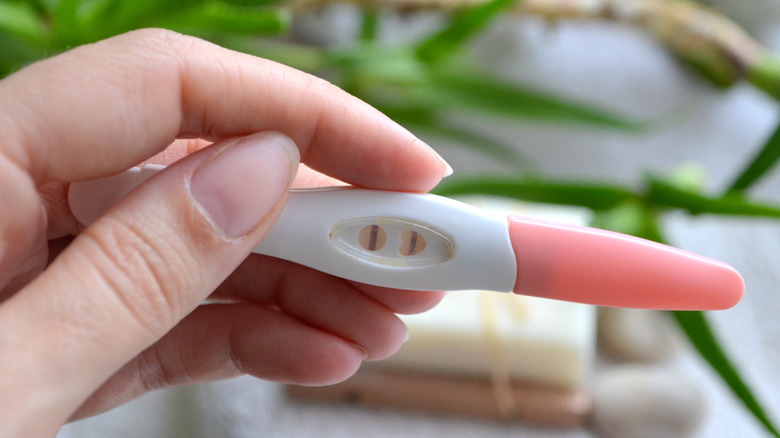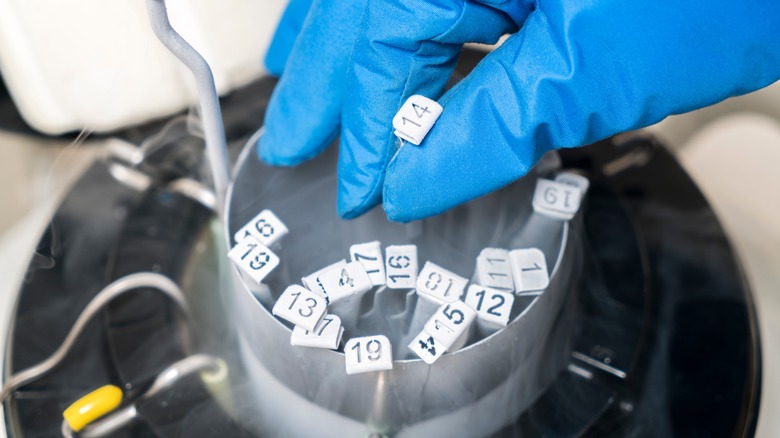Does The Age Of Your Egg Matter If You Undergo IVF?
While many fertility treatment options are available to couples these days, in vitro fertilization — better known as IVF – is the most common one.
During IVF, doctors retrieve an egg from a person's ovaries and fertilize it with sperm in a laboratory. The fertilized egg is then placed in a person's womb (via NHS). According to Medical News Today, people opt for IVF because it is considered the most effective fertility treatment, and very often, they go for IVF when all other treatments have failed.
Despite a single IVF cycle costing around $12,000 to $15,000 (via Verywell Family), more than 55,000 people in the United States give birth to a child through assisted reproductive technologies each year (via The New York Times).
However, the success rates of any fertility treatment — including IVF — depend on a variety of factors, including a person's age, weight, and lifestyle. Besides that, the procedure is both physically and emotionally demanding for couples.
Does the age of your egg matter?
Even though medical technology has come a long way in terms of introducing successful fertility treatments, a person's biological clock still plays a crucial role in getting pregnant and successfully achieving a live birth (via North Carolina Fertility Medical Center).
According to the NHS, IVF is more successful among persons below the age of 42 because those older than that have a low chance of attaining a successful pregnancy. This is because, unlike males who produce millions of sperms, females produce between 300 and 400 eggs during their reproductive lifetimes.
But as they age, they are left with fewer eggs and the quality of eggs also declines (via Healthily). Per the website, after the age of 37, the number of eggs rapidly decreases and by the time a person reaches the age of 40, they only have less than a 5% chance of getting pregnant per cycle.
Statistics from the United Kingdom show that in 2019, 32% of people below the age of 35 successfully achieved live birth through IVF treatment. Meanwhile, the success rate for persons between the ages of 35 to 37 was 25%, 19% for those aged between 38 to 39, 11% for people between the ages of 40 to 42, 5 percent for those aged 43 to 44, and only 4% for those aged over 44.
What other options are there if IVF fails?
Irrespective of a person's age, unfortunately, IVF does not work for everyone. While some people get pregnant during the very first IVF cycle, others have to go through two or three cycles to achieve pregnancy. For some couples, even multiple attempts at IVF do not result in a successful pregnancy, and even if someone gets pregnant, they might not always achieve a live birth.
However, there are other options for couples who are unable to make the most of IVF treatments. According to Susan Hudson, M.D. — a reproductive endocrinologist at Texas Fertility Center — those who have already tried IVF and failed or if the doctors have told them that IVF might not work for them due to age or other factors, can opt for donor eggs, donor embryos, or donor sperms.
However, it could cost up to $15,000 to $20,000 per cycle to go through IVF using donor eggs. "The entire process — from egg retrieval to embryo creation, embryo transfer and hopefully eventual embryo implantation — could cost up to $20,000 total," Dr. Angeline Beltsos, a Chicago-based Reproductive Endocrinology & Infertility Specialist, told Forbes.


